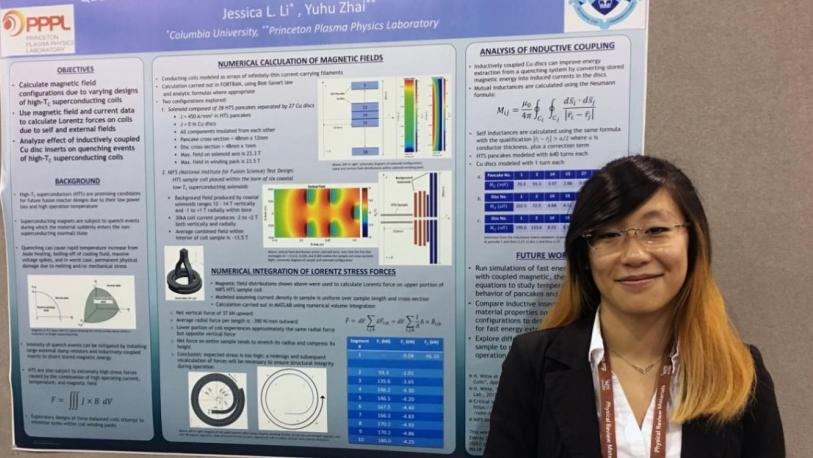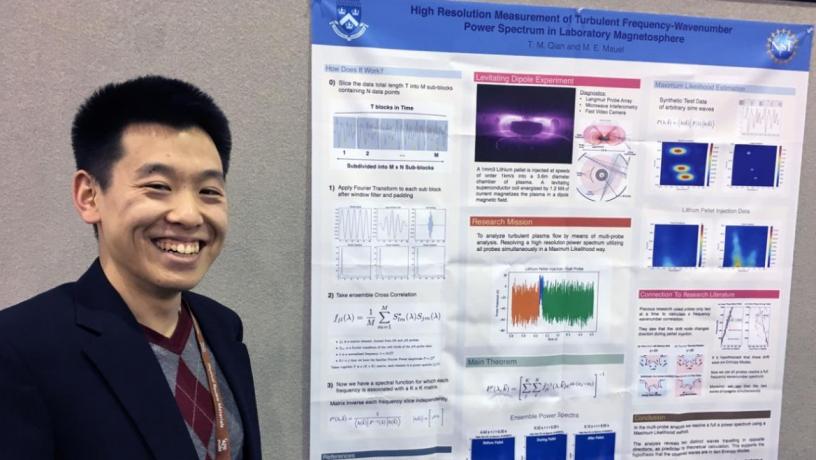Undergrads Attend 2017 APS Meeting
Jessica Li (SEAS '18) and Tony Qian (CC '18) presented their research at the 59th Annual Meeting of the APS Division of Plasma Physics, held October 23-27, 2017 in Milwaukee, Wisconsin.

Jessica Li (pictured above) presented her research conducted during the summer at the Princeton Plasma Physics Laboratory as part of the Science Undergraduate Laboratory Internship (SULI) program [http://www.pppl.gov/

Tony Qian (pictured above) presented his research measuring the frequency-wavenumber power spectrum of plasma turbulence by applying the method of Jack Capon (Ph.D. Electrical Engineering, SEAS 1959) to simultaneous multi-point measurement of plasma entropy modes using an antenna array. Unlike previously reported measurements in which ensemble correlation between two probes detected only the dominant wavenumber, Capon's "maximum likelihood method" uses all available probes to produce a frequency-wavenumber spectrum, showing the existence of modes propagating in both electron and ion magnetic drift directions.
In addition to Jessica Li and Tony Qian, APAM graduate students Mel Abler, John Brooks, Joshua Cabrera, S. DeSanto, and Ian Stewart presented research on understanding plasma turbulence cascades and the control and dynamics of the tokamak instabilities.
Two APAM Associate Research Scientists also participated in this meeting. Dr. Francesca Turco, who works at General Atomics, delivered an invited lecture titled “Understanding the stability of the low torque ITER Baseline Scenario in DIII-D” and Dr. Jeff Levesque presented his research titled “Scrape-off-layer currents during MHD activity and disruptions in HBT-EP.” Levesque also gave a talk on the same subject at the ITER site in St. Paul lez Durance, France on October 13, 2017.
Additional information about this year’s APS Division of Plasma Physics Meeting can be found online: http://www.aps.org/
